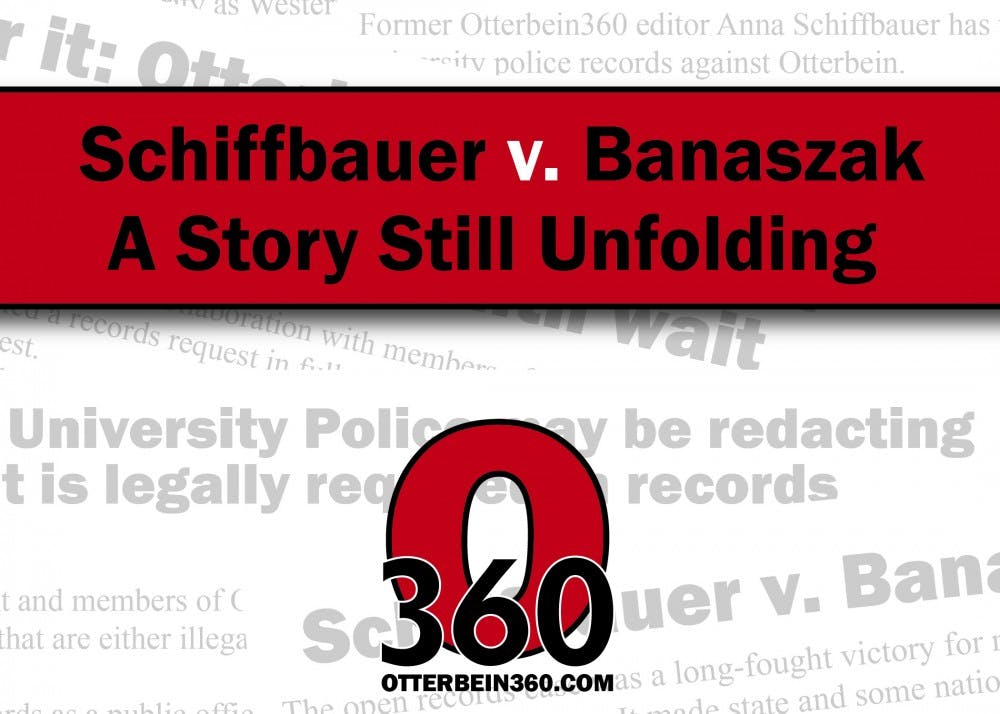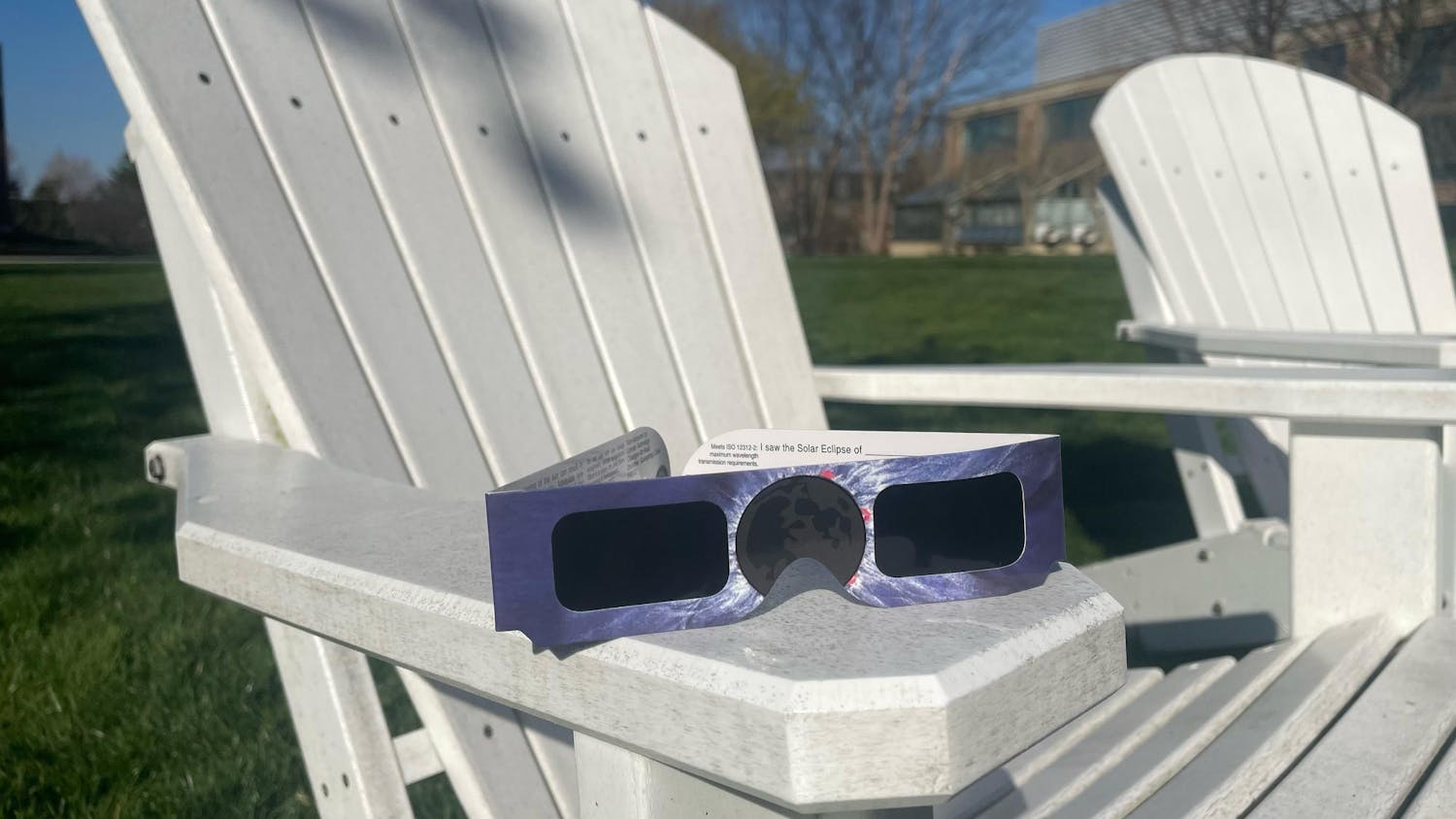Otterbein University has released incident reports largely unredacted to avoid being held in contempt of court in the Ohio Supreme Court.
On Aug. 20, Otterbein360 recovered 27 incident reports from the Otterbein Police Department. The records release succeeded a nearly year-long court case filed by and ruled in favor of former Otterbein360 news editor Anna Schiffbauer, which was filed to release the records. The records contained redactions ranging from the censorship of the names of uncharged suspects to the removal of information supposedly barred by court-ordered expungements.
Four days later on Aug. 24, Otterbein360 published three articles, a news story about the records release, a story detailing the redactions, and an editorial that praised the court decision and stated that victims’ names would not be published. The story detailing the redactions stated that Otterbein had chosen to adopt an interpretation of public records law not normally adopted by public offices in making the redactions.
John Greiner, the attorney who represented Schiffbauer in the lawsuit, asked for the redacted reports to be sent to him. On Aug. 26, Otterbein360 sent the 27 redacted incident reports to Greiner.
Otterbein360 Editor-in-Chief Sean Feverston requested sexual assault training protocol documents from OPD following the decision. After Feverston retrieved the documents on Aug. 28, OPD Chief Larry Banaszak asked for an impromptu meeting, which OPD deputy chief John Petrozzi joined.
At the meeting, OPD asked Feverston if Otterbein360 had an official policy in regards to releasing the identifying information of victims and uncharged suspects and Banaszak and Petrozzi reiterated their stance of acting in the interest of protecting victims. Feverston said that the organization had an official policy stating that victims’ identifying information would not be disclosed but there was no policy in regards to uncharged suspects. Also discussed was the strained relationship between OPD and Otterbein360 and Chief Banaszak expressed interest in a relationship of amiable professional cooperation between the two organizations. The majority of the remainder of the meeting was spent discussing the release of additional records related to the July 9 request.
On Sept. 2, Otterbein360 reporter Logan Meyst retrieved the same volume of 27 incident reports that were requested earlier; these reports had been left without redactions with the exception of social security numbers, which are not normally required to be disclosed by the Public Records Act. The reports contained some of the materials that Feverston had requested earlier.
On Sep. 9, Otterbein Chief of Staff Christine Robbins emailed a “Letter from the President” signed by Otterbein President Kathy Krendl to all Otterbein students, faculty and staff. The letter stated a brief overview of events from the University's perspective since Otterbein360's denied public records request in 2014 that was used as grounds for litigation. The letter stated that Otterbein had contacted other institutions after the decision for advice and decided to redact the names of uncharged suspects and victims.
“However, on August 28, 2015, the day after the OPD meeting with Otterbein360, the Otterbein360 attorney threatened Otterbein with a contempt of court complaint before the Ohio Supreme Court for redacting the names of these students,” the letter stated. “As a result, we felt compelled to release the names to Otterbein360. Our concern is that under the contempt of court threat, any member of the public could now have access to the names of victims and uncharged suspects.”
On Sept. 10, the letter was read aloud by Student Government President Carrie Coisman at the second meeting of student senators.
Greiner sent the email mentioned by Krendl to an attorney representing Otterbein, Richard Lovering. Greiner stated in the email that his clients had received a large number of incident reports that contained redactions and that a contempt of court citation would be filed in the Ohio Supreme Court unless records were released by Sept. 4. The email quoted Ohio Supreme Court case State ex rel. Beacon Journal v. Mauer.
“Sometimes in public records law there’s some grey areas but with incident reports, again, that one case I cited, the Mauer case, addressed that question directly, it held that incident reports have to be turned over unredacted,” Greiner said. “The simple answer is it’s the law.”
In the case Greiner references, an editor of the Akron Beacon Journal requested a full incident report of a case where a police officer shot and killed an armed suspect. The holder of the records released the incident report with the name of the officer who shot the suspect blacked out. Beacon Publishing sued for the full report and the Ohio Supreme Court ruled in favor of Beacon, partially because of the public benefit of providing "complete and accurate news reports to the public" through the newspaper.

A request for comment following the release of the unredacted records was sent to Banaszak, Title IX coordinator Scott Fitzgerald and Dean of Student Affairs Robert Gatti.
If you have an opinion on this story and you want to be heard, Otterbein360 encourages letters to the editor that are under 500 words at webeditor@otterbein360.com.






